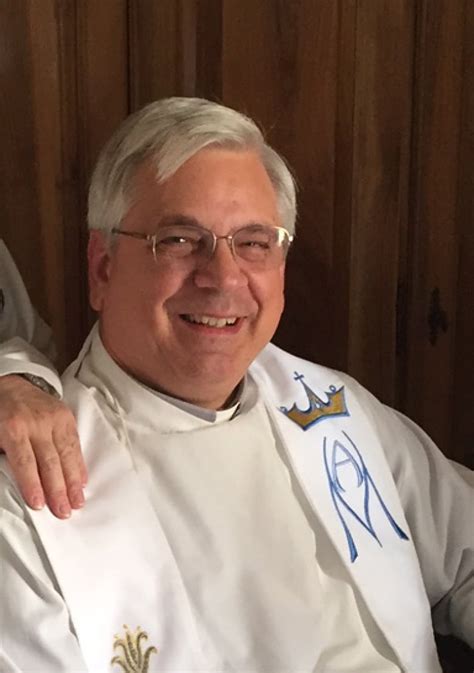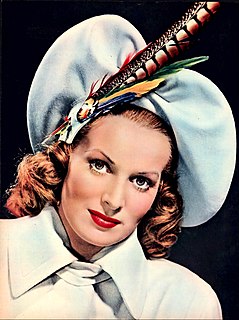A Quote by Mother Teresa
She lived almost fifty years of her life completely dedicated to the care of the poor and the marginalized. Astonishingly, for those nearly fifty years she identified completely with the poor she served by her own experience of being seemingly unwanted and unloved by God. In a mystical way — through this painful interior "darkness" — she tasted their greatest poverty of being "unwanted, unloved, and uncared for."
Related Quotes
She believes in love and romance. She believes her life is one day going to be transformed into something wonderful and exciting. She has hopes and fears and worries, just like anyone. Sometimes she feels frightened. Sometimes she feels unloved. Sometimes she feels she will never gain approval from those people who are most important to her. But she’s brave and good-hearted and faces her life head-on.
She stared at herself in the mirror. Her eyes were dark, almost black, filled with pain. She'd let someone do that to her. She'd known all along she felt things too deeply. She became attached. She didn't want a lover who could walk away from her, because she could never do that - love someone completely and survive intact if her left her.
I actually grew fond of her in a nastily superior kind of way. For she was so completely artless and optimistic and clueless, she didn't care that she smelled bad or was fat or wore clothes unlike everyone else's, she had some weird disconnect with life that kept her constantly bubbling, and you knew she would go blithely through her long horribly boring life thinking every thing was just swell (the opposite of me).
The smile that covered a "multitude of pains" was no hypocritical mask. She was trying to hide her sufferings - even from God! - so as not to make others, especially the poor, suffer because of them. When she promised to do "a little extra praying & smiling" for one of her friends, she was alluding to an acutely painful and costly sacrifice: to pray when prayer was so difficult and to smile when her interior pain was agonizing.
My mother had been an incredibly bright kid but her family couldn't afford for her to stay in education. So she lived through me. She was a very remarkable woman and I owe a huge debt to her. She was unashamed about delighting in the fact that I was intelligent, and she drove and pushed me. She was also completely indifferent to popularity.
Being an Irishwoman means many things to me. An Irishwoman is strong and feisty. She has guts and stands up for what she believes in. She believes she is the best at whatever she does and proceeds through life with that knowledge. She can face any hazard that life throws her way and stay with it until she wins. She is loyal to her kinsmen and accepting of others. She's not above a sock in the jaw if you have it coming.
I choose the poverty of our poor people. But I am grateful to receive it (the Nobel) in the name of the hungry, the naked, the homeless, of the crippled, of the blind, of the lepers, of all those people who feel unwanted, unloved, uncared for throughout society, people that have become a burden to the society and are shunned by everyone.
And she [Eleanor Roosevelt]loves being a star. And she loves being a teacher and a leader and a mentor and a big friend. Also, she's tall. She's one of the tallest girls in the school. And she's an athlete. And she writes many years later, at the end of her life, she writes that the happiest day, the happiest single day of her life was the day that she made the first team at field hockey. And I have to say, as a biographer, that's the most important fact. I
Like her [Mary], let us be full of zeal to go in haste to give Jesus to others. She was full of grace when, at the Annunciation, she received Jesus. Like her. we too become full of grace every time we receive Holy Communion. It is the same Jesus whom she received and whom we receive at Mass. As soon as she received Him. she went with haste to give Him to John. For us also. As soon as we receive Jesus in Holy Communion, let us go in haste to give Him to our sisters, to our poor, to the sick, to the dying, to the lepers, to the unwanted, and the unloved. By this we make Jesus present in the world today.
Anyway, you can't leave her like that. You can't do that to the woman. She doesn't deserve it; nobody does. You don't belong to her and she doesn't belong to you, but you're both part of each other; if she got up and left now and walked away and you never saw each other again for the rest of your lives, and you lived an ordinary waking life for another fifty years, even so on your deathbed you would still know she was part of you.
She was beautiful, but not like those girls in the magazines. She was beautiful, for the way she thought. She was beautiful, for the sparkle in her eyes when she talked about something she loved. She was beautiful, for her ability to make other people smile, even if she was sad. No, she wasn't beautiful for something as temporary as her looks. She was beautiful, deep down to her soul. She is beautiful.
Eventually she came. She appeared suddenly, exactly like she'd done that day- she stepped into the sunshine, she jumped, she laughed and threw her head back, so her long ponytail nearly grazed the waistband of her jeans. After that, I couldn't think about anything else. The mole on the inside of her right elbow, like a dark blot of ink. The way she ripped her nails to shreds when she was nervous. Her eyes, deep as a promise. Her stomach, pale and soft and gorgeous, and the tiny dark cavity of her belly button. I nearly went crazy.







































